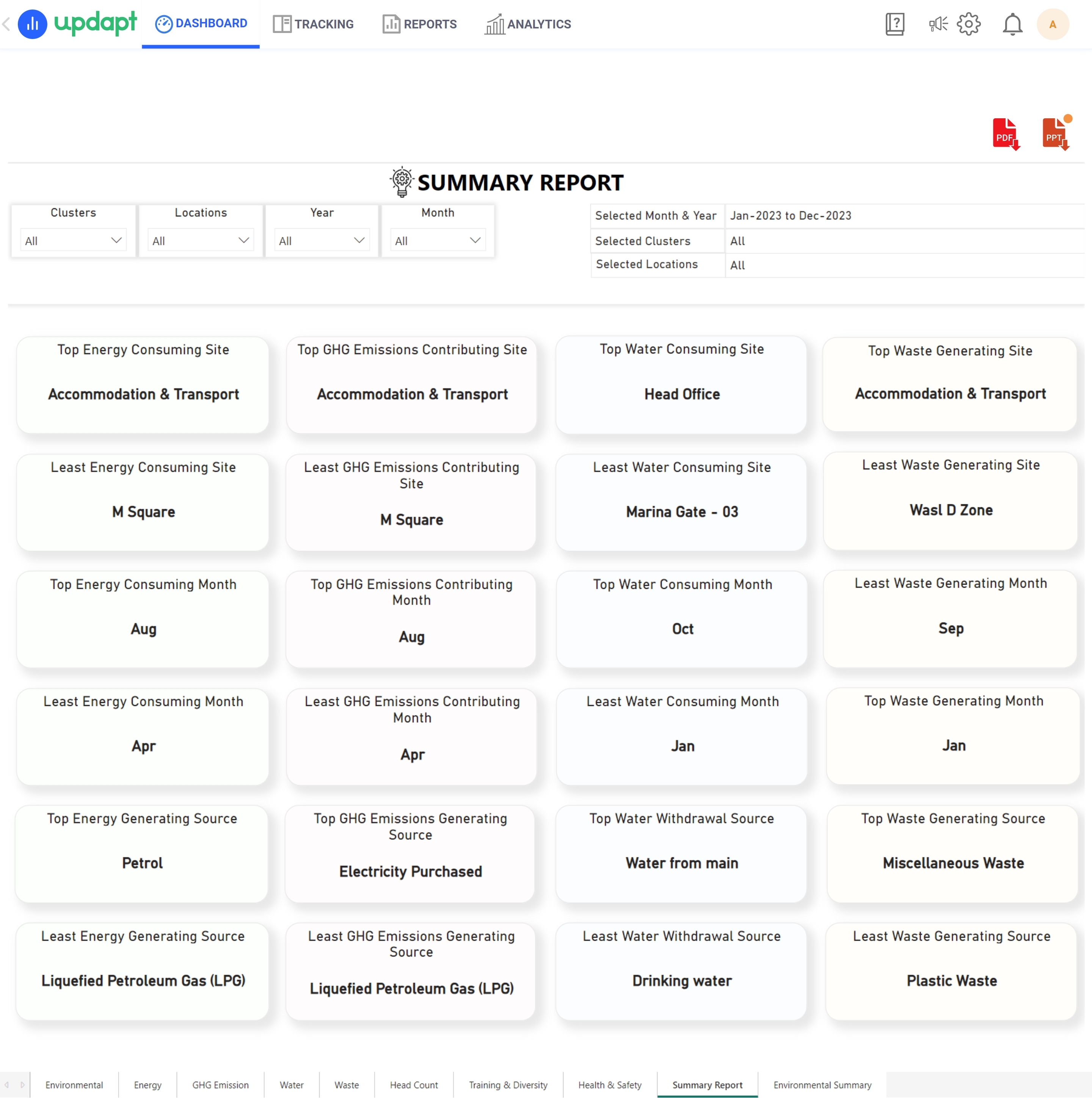
In the ever-evolving landscape of business, ESG data management software has emerged as a pivotal tool for a diverse range of entities. The contemporary business environment is undergoing significant transformation, and organizations striving for long-term success must embrace these changes. ESG data, much like customer data, plays a vital role and is instrumental in attracting investors.
This blog is your comprehensive guide to understanding ESG data management software. Whether you are a business leader or a sustainability advisor, we'll explore the ins and outs of this crucial tool.

The Significance of ESG Data Management Software in Business:
- Data Collection:
ESG data collection is a fascinating process that involves gathering data from various sources, including finance, operations, and governance data from the board, legal departments, and more. This not only reduces human errors but also mitigates risks and ensures data accuracy. - Track, Analyze, and Consolidate:
Effective ESG reporting demands the seamless integration of data from various sources. ESG data platforms excel in tracking and analyzing this data efficiently. - Customization Based on Business Needs:
ESG reports should be customizable to meet the unique objectives of each entity. Some may focus on carbon emissions, while others require a broader ESG report. The flexibility to customize ESG reports based on entity requirements is crucial. - GHG Emission Tracking:
With many countries striving for net-zero emissions by 2050, decarbonization is paramount in the business world. ESG Data Platforms help in accurately measuring and tracking various carbon emissions, such as scope-1, scope-2, and scope-3. Users can also customize emission factors and track location-based emission data. - Risk Identification and Mitigation:
ESG data management software aids in identifying ESG-related risks early, preventing financial and reputational losses. - Cost Savings:
ESG data management software allows organizations to identify areas that require more attention and areas where resource allocation may lead to waste, ultimately leading to cost savings.
Challenges of ESG Data Management:
- Data Quality:
Ensuring data accuracy is a major challenge in ESG reporting, given the diverse sources of ESG data. - Transparency:
Lack of transparency in ESG performance can deter investor and stakeholder interest and hinder understanding of an organization's ESG impact. - ESG Data Availability:
ESG data is sourced from a variety of internal systems, external providers, and public databases, making it crucial to verify data accuracy. - Data Integration:
Integrating ESG data with other data types, such as financial and operational data, is essential for comprehensive data analysis but can be complex to maintain consistently across various data platforms.
Common Features of ESG Data Management Software:
- Data Collection.
- Data Integration.
- Performance Tracking of Data.
- Risk Management and Mitigation.
- ESG Impact Measurement.
- Reporting Creation.
- Measurement and Tracking of GHG Emissions.
Key Considerations Before Purchasing ESG Data Management Software:
When selecting ESG data software, consider the following factors:
- Pricing Options (Free Trial, Monthly Subscription, Free Demo Availability).
- Integration Support for Different types of organization and multilevel integration.
- Aligning to global standard of reporting such as GRI, BRSR, TCFD, CDP.
What is ESG Data Platform:
The ESG Data platform offers organizations the ability to efficiently track, analyze, and consolidate ESG data within a centralized data collection system. It is not limited to data management alone but also facilitates risk identification, reputation management, and informed decision-making.
How ESG Data Management Facilitates Investment:
In 2022, the ESG market reached $41 trillion, and this figure is increasing rapidly in 2023. Numerous investors now prioritize ESG factors in their investment decisions. Many organizations are also focusing on ESG, highlighting the growing importance of ESG in the coming years. Transparency in ESG performance is a key driver for attracting investors, as it allows them to track an organization's progress through its ESG reports.
Why Updapt ESG Data Management Software Is Your Best Bet:
Updapt stands out as an unparalleled Sustainability Software, suitable for organizations of all sizes, including small, medium, large, and enterprise. It simplifies the sustainability process and offers customization of measurement metrics to suit your specific needs.

Unique features of UpdaptESG include:
- 750+ data points.
- Internationally recognized sustainability frameworks such as GRI, BRSR, TCFD, CDP.
- Measurement of various carbon emissions, including scope-1, scope-2, and scope-3.
- Collection, monitoring, and reporting of ESG performance.
- Streamlining ESG data in a centralized system.
- Generation of enhanced ESG reports.
- Risk identification and mitigation.
- An interactive dashboard.
If you are seeking ESG data management software to guide your organization into 2023 and beyond, begin your ESG journey with Updapt - An ESG Tech Co.

